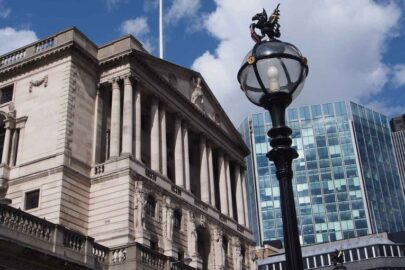The Bank of England’s Monetary Policy Committee (MPC) has voted by a majority of 8-1 to increase the Bank Rate by 0.25 percentage points, to 0.75%.
The MPC warned that inflation is expected to increase further in coming months, to around 8% in 2022 Q2, and “perhaps even higher” later this year.
Frances Haque, Santander UK Chief Economist, said: “The decision to raise Bank Rate for the third consecutive meeting was not a surprise to markets and forecasters alike.
“With inflation continuing to rise to levels not seen in decades, caused partly by supply constraints and the energy crisis exacerbated by the ongoing situation in Ukraine; along with the labour market remaining tight; and medium-term inflation expectations rising, the Committee’s concerns over these trumped apprehension around the effect on economic growth of raising Bank Rate again.
“However, moving forward, with the new energy cap coming into force in April along with the National Insurance hike squeezing incomes further, the MPC will continue to need to balance inflation expectations against lower growth as we move through 2022.”
Mark Harris, chief executive of mortgage broker SPF Private Clients, added: “The markets have already priced in a base rate rise, with an upward pricing trend across the board and the days of sub-1 per cent fixes long gone. The Bank of England has to carefully balance the need to control inflation with the wider economic challenges posed by rising interest rates.
“For every £100,000 on a variable-rate mortgage, a quarter point rate rise adds £250 a year.
“The purchase market is still active although the froth has gone. Activity in the remortgage market is picking up and is set to continue as borrowers look to secure rates before there are further increases. Rates can be booked up to six months before they are required and we are getting a lot of interest from motivated borrowers in doing this.
“Even with this latest rate rise, we remain in an extremely low interest rate cycle and expect that to be the case indefinitely.”
